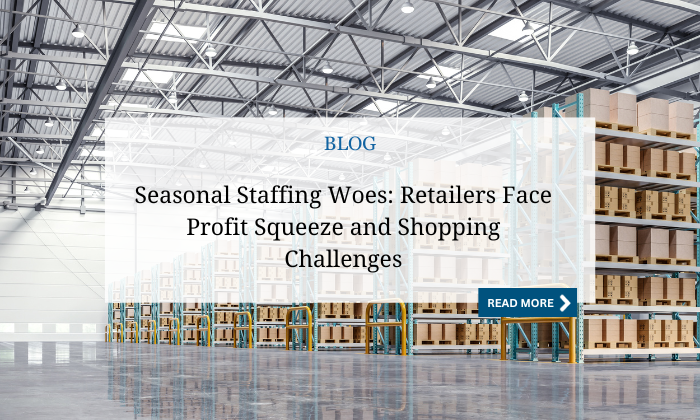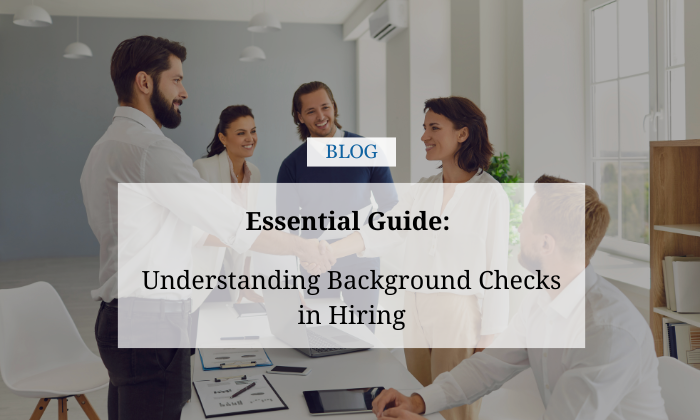This year’s demand for seasonal workers remains robust, with over 75% of companies aiming to match or surpass previous hiring levels, including major players like Target, Amazon, and UPS. However, the tightening labor market, as noted by Matthew Lavery of UPS, is making candidate recruitment more challenging than last year.
Falling short of holiday hiring goals could lead to discontent among shoppers and potentially result in missed sales during this crucial retail period. To attract workers, companies are going all out, revamping recruitment strategies, increasing wages, and enhancing benefits, according to Ed Egee of the National Retail Federation.
While these measures gained popularity during the tight labor market of the previous year, the impact on retailers could be more significant this time around. Unlike 2021, when a strong Q4 helped offset rising labor costs for companies like Target, Walmart, and Macy’s, concerns about falling demand and excess inventory are already surfacing for this year’s holiday season. The evolving dynamics pose a potential challenge for retailers.
Securecheck360
Here at Securecheck360, we’re experts in delivering top-notch Employment Background Screening Services, serving businesses of all sizes across the globe. Our customized solutions are finely tuned to meet the unique requirements of small, mid-sized, and large organizations. We’re dedicated to equipping companies with the vital tools and insights they need to make well-informed hiring choices. As one of the leading background verification companies, we’re committed to supporting even small businesses as trusted background check companies for small businesses to ensure they have the confidence to build the best teams for their success.
Understaffed—Again
The challenge of a tight labor market persists as we step into 2023. Retailers have grappled with staffing shortages for the past couple of years, a consequence of downsizing in 2020. Those laid off during the pandemic have moved on to more appealing roles in different sectors, contributing to the difficulty in rehiring. Even those who weathered the storm may be contemplating leaving, as highlighted in a McKinsey study from August, revealing retail workers were 1.3 times more likely than the broader U.S. workforce to express intentions of changing jobs. Reasons ranged from frustration with inflexible workplaces to insufficient career development and concerns about well-being.
As of September, the unemployment rate has ticked down to 3.5%, but the number of available retail positions surpasses the workforce seeking employment. Recent data from the Bureau of Labor Statistics indicates approximately 939,000 open retail jobs with only 768,000 job seekers.
Oxford Economics economist Nancy Vanden Houten notes an ongoing imbalance in the supply and demand for retail workers. While there is a gradual shift toward equilibrium, the situation remains uncertain, and achieving a perfect balance is yet to be realized.
Changing Strategies
Workers are firmly in control as we step into the 2023 holiday season. On a bustling October day, 27-year-old Kevin Mercado entered a Macy’s holiday hiring event at New York City’s Herald Square. Within a few hours, he walked out with a job offer. However, Mercado, juggling multiple options, wasn’t ready to commit just yet—he had another offer from a different Macy’s location and an upcoming interview with a Walmart store.
Securing employees like Mercado has led companies to enhance benefits, offer more flexible scheduling, and, naturally, increase wages. Target, for instance, raised its starting pay to $24 per hour, while Walmart’s average hourly wage climbed to over $17.
The competition has also driven employers to streamline the application and hiring process. UPS, for example, reduced its process to about 25 minutes from application to offer for most jobs, seasonal and permanent. Macy’s streamlined its hourly worker application process to “as little as five minutes,” with the majority of job offers made within 48 hours, citing the importance of speed during holiday hiring. The accelerated process, implemented by Macy’s in 2021, contributed to filling open permanent positions and reducing turnover.
In-person recruitment events, like the one attended by Mercado, are emphasized as “more important than ever” by Amy Hunter Glaser, senior vice president of business operations at staffing agency Adecco. Glaser highlights the personal touch as crucial when candidates have numerous options. Mercado, reflecting on his experience, acknowledges the significance of team culture but indicates that his decision ultimately hinges on pay.
Skipping Seasonal
As we step into the holiday season, certain retailers are adapting to the workforce shortage by reevaluating their reliance on seasonal hires. A shift is occurring towards providing regular employees with increased opportunities to take on extra hours during the holiday rush. Amy Hunter Glaser, Senior Vice President of Business Operations at staffing agency Adecco, notes that some companies are also offering temporary hires more chances to transition into full-time roles.
This approach aligns with the longstanding advocacy of labor unions, according to Chelsea Connor, Director of Communications at the Retail, Wholesale, and Department Store Union. Over the years, unions have pressed for more full-time workers to be eligible for overtime pay during the busy holiday season. The challenge has been that employers often opt for the cheaper alternative of hiring seasonal workers.
Target implemented this strategy in 2021, hiring 30,000 fewer seasonal workers in 2021 compared to 2020. Instead, the company aimed to provide its staff with an additional 5 million work hours, resulting in $75 million in extra pay. Walmart, which plans to hire just 40,000 seasonal workers compared to 150,000 in 2021, is also adopting a similar approach.
Walmart spokesperson Nick DeMoss emphasizes that the hiring plans for this year differ from the previous one. The focus is on strengthening overall staffing levels heading into the holiday season. Current associates are given the initial opportunity to take on additional hours, allowing them to earn extra income for the festive period.
Labor Winners and Losers
These strategies come with potential financial implications. Numerous companies, including major players like Costco Wholesale (COST), Macy’s, and Nordstrom (JWN), have issued warnings about the impact of rising labor costs on their bottom lines. This effect could be particularly challenging for smaller and independent retailers that already grapple with slimmer profit margins. As a result, some of these businesses may find themselves constrained to work with their existing staff. A report from Alignable reveals a notable decline in the efforts of small, independent retailers to hire holiday help, dropping from 32% last year to just 15%.
The advantage, in this scenario, seems to lean towards larger companies with robust balance sheets, according to Mari Shor, Senior Analyst at Columbia Threadneedle. Major players like Walmart, Target, Macy’s, and UPS have assured Barron’s that their hiring plans are underway and on track to meet, or come close to meeting, their staffing requirements.







